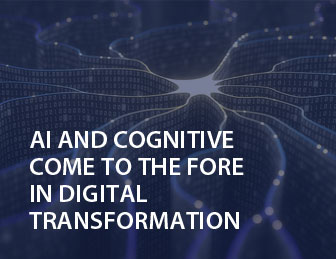In today’s digitally connected marketing landscape with companies competing to outsmart each other with business intelligence and analytics, data has truly become the new currency. But the availability and access of high value data comes with the inherent threat of privacy violation. That’s why privacy and security professionals, security and risk management leaders, CISOs and CIOs are increasingly recognizing the importance of the maturing privacy regulations to ensure smooth and secure privacy friendly operations of their business and transaction processes.
Personal data is highly sensitive and vulnerable, and the level of volume represents the largest area of privacy risk today. Blockchain can be of help in such a scenario, and this is what we will keep our discussed.
How blockchain stores data
Deeper threat to individual privacy always exists in digital transactions and interactions that require a fundamentally new technological approach, and blockchain provides one to the companies. Blockchain essentially consists of digital ledger of blocks whose contents are interconnected in a manner that each subsequent block has a cryptographic record of the previous block. It is not possible to manipulate data after it has been entered into a block and attached to a subsequent block of the chain through a consensus procedure that ensures integrity of data content residing in each of these blocks.
Vulnerability concerns for data integrity
Data holds significant value and power in today’s digitalized economies for those who generate, need and control it. However, control of personal information by private entities is a matter of concern that needs to be addressed. Individual loss of control of personal data is not just limited to few companies that monopolize it, rather the vulnerability of the data integrity and its security lies in the very structure of the internet itself, how it works and how this data is stored by the organizations.
Blockchain to track data access
By transferring the ownership of original information, which is quite unlike the internet where the information is copied again and again, a blockchain keeps a permanent record of data that can be accessed by other entities with the temporary permission as and when needed. This way, a blockchain keeps track of who gets access to your data, without revealing the underlying data.
Integrity challenges for data stored on blockchain
However, blockchain application development comes with its own set of unique challenges.. The immutability of blockchain data means that inaccuracies, no matter how rare they are, cannot be easily corrected in a blockchain. While immutability of blockchain records provides benefits to the users in terms that the data’s integrity and trust value is preserved, but it could pose real problems to the persons whose data is inadvertently or fraudulently stored incorrectly. There will invariably be such instances and checks and balances need to be introduced to deal with frauds and errors in the smart contracts. Companies such as Aenco, Datum Network and Shyft have been the frontrunners that have worked seriously to solve privacy threat issues for their users.
Poisoned personal data
Public blockchains need an immutable data structure, means the data stored in them should not be easily modifiable or deleted. The organizations implementing blockchain systems without managing privacy issues by design run the risk of compromising chain integrity in case attempts are made to poison the personal data by fraudsters.
GDPR and the right to be forgotten
We have EU General Data Protection Regulation (GDPR) that applies to any enterprise-sanctioned blockchain that contains personal data. Although these data protection guidelines are in force since May 2018, organizations are at different levels of compliance as many of them are struggling with integration costs and technologies that could help speed up with compliance and regulatory. GDPR regulations provide the individual’s right to get their personal information erased if they choose to.
Smart contracts can be used to address the issue of right to erasure by an individual. Commonly known as the “right to be forgotten” GDPR regulations mandate the companies to erase unused personal data unless they have compelling reasons to continue processing it. Note that GDPR regulations apply even to the companies outside of EU that process the data of EU citizens.
Penalties for retaining unused data
In the coming years, the organizations that do not revise their data retention policy are likely to be charged stiff penalties for violating the privacy laws related to the retention of unused personal data. GDPR has provision for regulatory fines of up to 4% of the annual turnover or €20 million, whichever is higher.
Permissioned blockchain for data privacy and security
You need experts to work with blockchain architecture to ensure that the personal data is stored in a manner that doesn’t violate any privacy laws. This is all the more evident from the fact that blockchain’s very nature prevents the modification of data, it’s something that conflicts with GDPR regulations that allow for the erasure of unused and retained data. This is possible by architecting the blockchain in a permissioned way. This can also be achieved by creating a blockchain with no personal data stored on it, but just a reference to the data which is stored as a hash or token.
Flexsin’s extensive expertise in developing permissioned blockchains for specific organizational use can be of real help to the businesses looking for affordable data privacy and security solutions, while being on a blockchain. We have recently been awarded IBM Badge for our deep understanding of blockchain architecture, network, JavaScript applications, hyperledger composer and smart contracts.
Contact Flexsin for your customized blockchain based data privacy and security solutions.


 Prashant
Prashant

